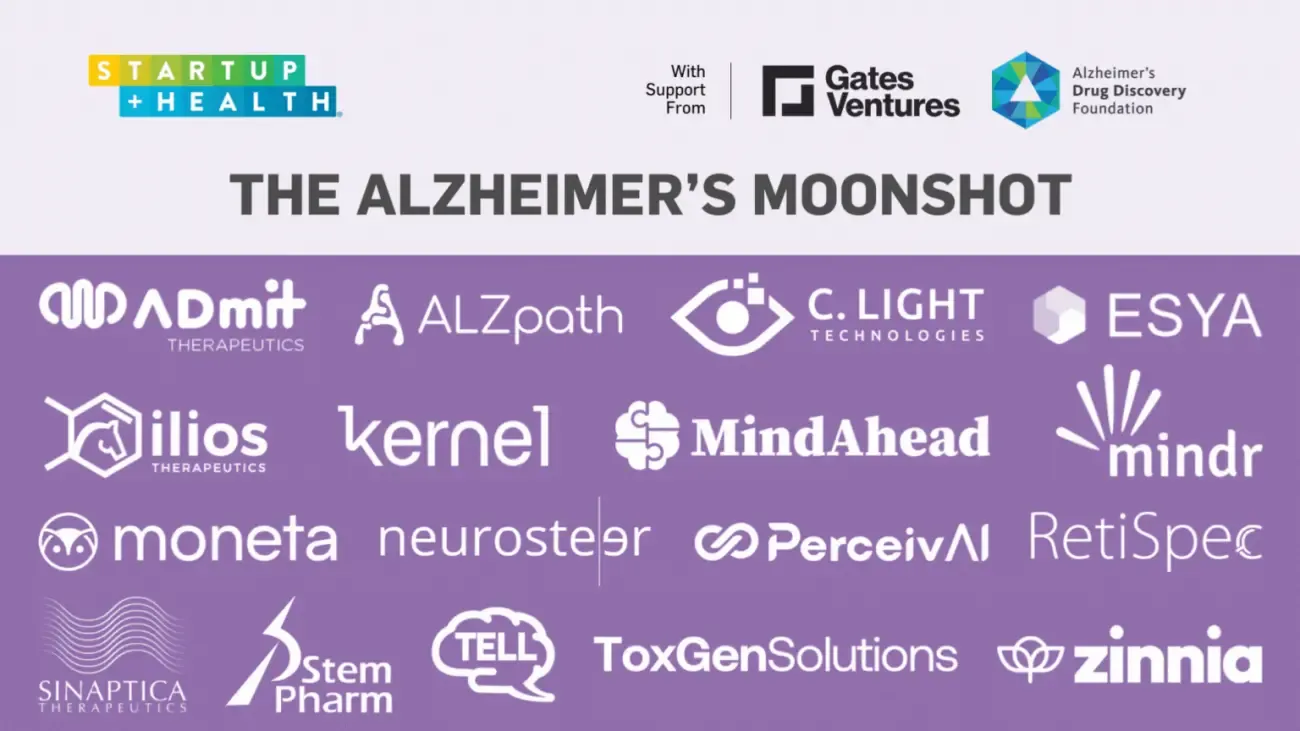ToxGenSolutions, a promising molecular diagnostics company based in Maastricht, The Netherlands, has been selected to participate in StartUp Health's Alzheimer's Moonshot accelerator program. This collaboration aims to revitalize Alzheimer's disease detection through ToxGenSolutions' first-of-its-kind testing service, which offers a prognosis for high-risk individuals up to 4-6 years before the first symptoms can be detected.

Alzheimer's disease affects millions of people around the world and has a severe impact on patients, their families and healthcare systems around the world. StartUp Health, based in the United States, plays a central role in advancing health innovation through strategic partnerships with various biotechnology organizations such as ToxGenSolutions. The collaboration is part of StartUp Health's Alzheimer's Moonshot initiative, launched in partnership with Gates Ventures and the Alzheimer's Drug Discovery Foundation (ADDF), which is supported by the Bill Gates Foundation. This initiative aims to unite a dedicated community of Alzheimer's innovators to accelerate diagnosis, treatment and even prevention of this impactful disease.
According to Alzheimer's Netherlands, there are currently about 300,000 people living with dementia in the Netherlands and this number is expected to rise to more than half a million by 2040 if no breakthroughs are made in prevention or treatment. The estimated cost of dementia is expected to reach 15.6 billion euros by 2040 (National Dementia Strategy 2021-2030). Moreover, Alzheimer's disease is the most common form of dementia, accounting for about 70% of cases. The condition not only affects the elderly, but also impacts health care systems and caregivers.
StartUp Health brings in its unique platform, which includes community support, expert coaching and media exposure that has been refined over 13 years and benefited more than 500 startups. This platform enables companies like ToxGenSolutions to translate breakthrough research into practical solutions that can be commercialized and scaled up, ultimately improving outcomes for Alzheimer's patients worldwide.
"ToxGenSolutions is honored to contribute our advanced diagnostic capabilities to the Alzheimer's Moonshot program," said Dr. Erwin Roggen, CEO and co-founder of ToxGenSolutions. "Our testing service provides pharmaceutical companies with an edge in clinical trials by ensuring that participants in controls are unlikely to develop Alzheimer's within the critical 4-6 year period. With this collaboration, we underscore our commitment to developing solutions for early disease detection."
Alarming statistics: Alzheimer's disease disproportionately affects women: 1 in 3 women are likely to develop the disease after age 65, compared with 1 in 7 men. On average, 1 in 5 people will experience Alzheimer's in their lifetime, regardless of gender. Notably, 95% of Alzheimer's cases are sporadic, influenced by environmental factors such as lifestyle, pollutants and diet, rather than through, what is less common, genetic inheritance.
A period of 4-6 years for clinical diagnosis of Alzheimer's disease is important for both individuals and health care systems. This longer period allows the identification of at-risk individuals before symptoms appear, potentially allowing early intervention.
For pharmaceutical companies, these advances are critical to the development of new treatments targeting the early stages of Alzheimer's: those stages where neurological damage is minimal or absent. Such therapies could slow or even prevent the progression of the disease altogether. This capability offers hope for the aging population in the Netherlands and worldwide, improving quality of life and potentially reducing the burden on caregivers and health care providers.
About prognostic test for preclinical Alzheimer's disease (and MCI)
Having an early detection period of 4-6 years before clinical diagnosis of Alzheimer's disease is important for both individuals and health care systems. This longer period allows at-risk individuals to be identified before symptoms appear, potentially allowing early intervention. For pharmaceutical companies, this is useful for developing new treatments that target the early stages of Alzheimer's: those stages where neurological damage is minimal or absent. Such therapies could slow the progression of the disease or even prevent it altogether.
Protein biomarkers, while useful, often indicate damage only after it has already occurred. By the time these proteins are detectable, significant neurological damage may have already occurred, limiting opportunities for effective early intervention. In contrast, a miRNA-based prognosis test indicates disease risk much earlier, long before physical symptoms or significant brain damage occurs. This proactive approach is essential for initiating treatments that can significantly alter the course of the disease.